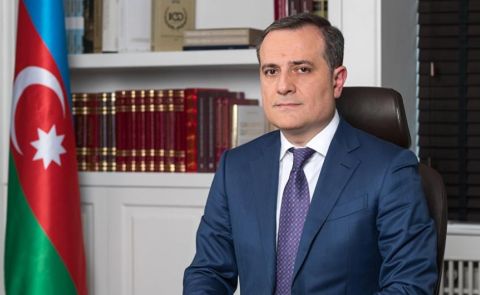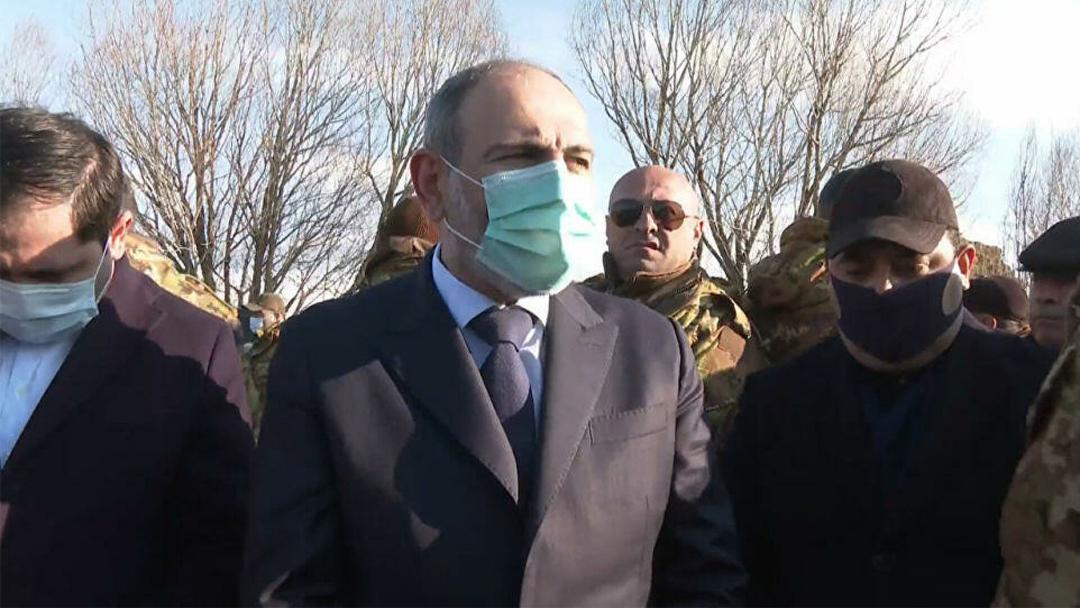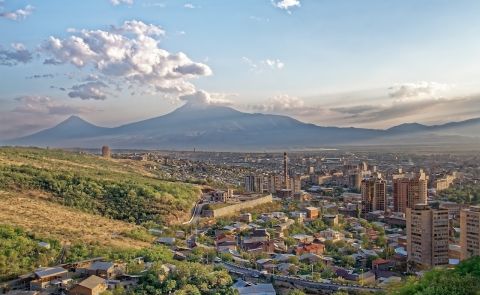
Nagorno-Karabakh: Pashinyan addresses Syunik province residents

On 21 December, Armenia’s Prime Minister Nikol Pashinyan addressed the residents of the country’s Syunik province following the protests in regard to the border demarcation process taking place after the Nagorno-Karabakh war.
Pashinyan said that due to the ongoing demarcation of the border with Azerbaijan in the southern province of Syunik army and border troops were being redeployed along the internationally recognised borders of Armenia. “The fact is that in the areas outside the internationally recognised borders of Armenia there was a high probability of resumption of hostilities in recent days, and if this escalation took place, the wave could reach the Syunik region, the territory of Armenia, with all the ensuing consequences," he said. Pashinyan also stressed that contrary to the rumours, not a millimetre of land will be ceded from the territory of Syunik.
Pashinyan added that by deploying troops at the internationally recognised borders of Armenia the government creates guarantees for Syunik since the newly created border between Armenia and Azerbaijan is part of a security system where completely different security rules apply. The Armenian Prime Minister also said that the current borders of the country were determined by the law on the administrative-territorial division of Armenia, which was adopted in 2010. “This law was adopted by the then authorities - the government and parliament, and, for example, the description of the administrative boundaries of the communities of Low Khndzoresk, Shurnukh, Tekh, Goris, Kapan is given as the border of Azerbaijan. Even then, the government adopted a law that describes all the current problem areas of the border. It turns out that in 2010 they already closed the issue of borders, and if the recognition of this border today is a betrayal, then in 2010 it was all the more a betrayal,” Pashinyan said.
He also explained why the Russian-led Collective Security Treaty Organization (CSTO) did not interfere amid the tense situation in Syunik. “The CSTO adheres to these boundaries and cannot interfere in the situation outside our borders. I received numerous assurances that if, God forbid, hostilities begin within our borders, a completely different regime will operate. As for Nagorno-Karabakh, this is a completely different issue - it is an internationally recognised conflict,” Pashinyan said.
In an extraordinary move, the Mayor of Goris in the Syunik province Arush Arushanyan, urged supporters on 20 December to block the main regional highway and bar Pashinyan from entering the region. “This is not a political orientation or a partisan initiative. This is a fight for the dignity, security and physical existence of the people of Syunik,” he said in an appeal posted on Facebook. Afterwards Arushanyan was arrested. This did not prevent hundreds of Arushanyan’s supporters from gathering in Goris and blocking the road which led to the town. A convoy of vehicles carrying the protesters was stopped just outside Goris and riot police units were sent from Yerevan to deal with the protesters. There are reports of brief clashes between the protesters and the police.
Pashinyan also addressed the protesters suggesting that the they unblock the road and visit the towns of Goris, Kapan, Meghri and Shurnukh with him to see what kind of support the people would give him. Pashinyan said that he was ready to meet with citizens of the Syunik province and answer their questions. He stated that there were also questions that he does not yet have answers.
Meanwhile, on an international level it was reported that the Belgian parliament adopted a draft resolution titled “Support to the initiatives of Belgium and international organizations for a lasting solution to the Nagorno-Karabakh conflict and a ceasefire“ which was condemned by the Azerbaijani authorities. The Azerbaijani Ministry of Foreign Affairs described the document as “unacceptable” and that it reflects “biased opinions” despite the fact that it includes references to the norms and principles of international law, as well as the Resolutions No 822, 853, 874 and 884 of 1993 of the UN Security Council. A similar resolution was presented in the Dutch parliament which was also condemned by the Azerbaijani MFA. “Recently, we observe that the Parliament of the Kingdom of the Netherlands has adopted resolutions against Azerbaijan that do not reflect the truth and are completely biased. Thus, the 11 resolutions adopted by the House of Representatives of the Dutch Parliament since 7 October on the situation in the region were one-sided, reflecting baseless and biased claims, and openly expressed anti-Azerbaijani and anti-Turkic position,” stressed the MFA.
See Also


Nordic-Baltic Delegation Meets Armenian Leaders to Discuss Regional Cooperation and Peace

Azerbaijan Strengthens Energy Partnerships with Multiple Countries

BP Strengthens Presence in Azerbaijan’s Offshore Energy Sector

Netanyahu’s Letter to Aliyev: Mutual Trust, Solidarity Following Hamas Attacks, Facilitating Dialogue Between Israel and Türkiye

